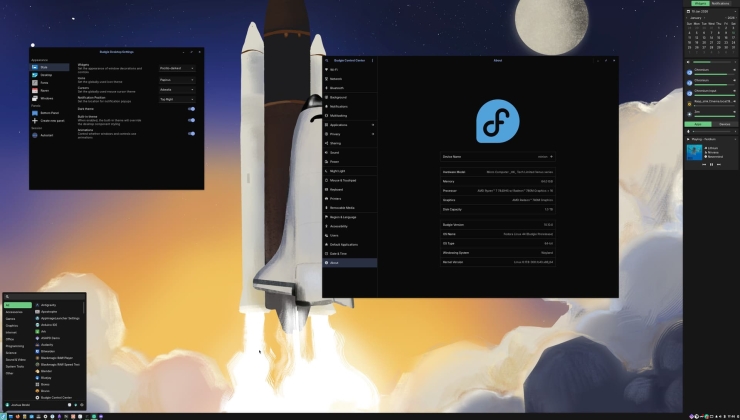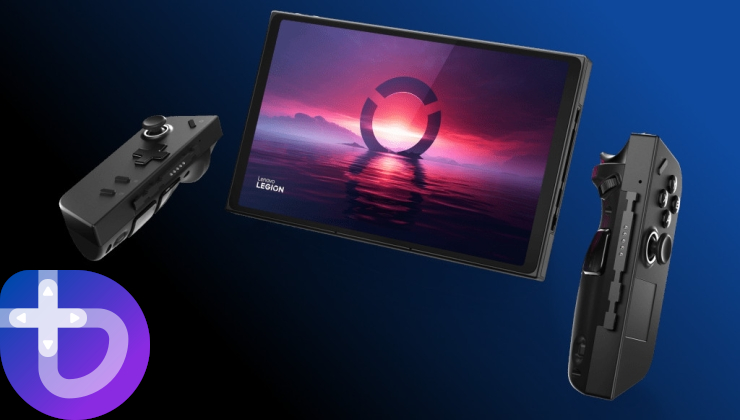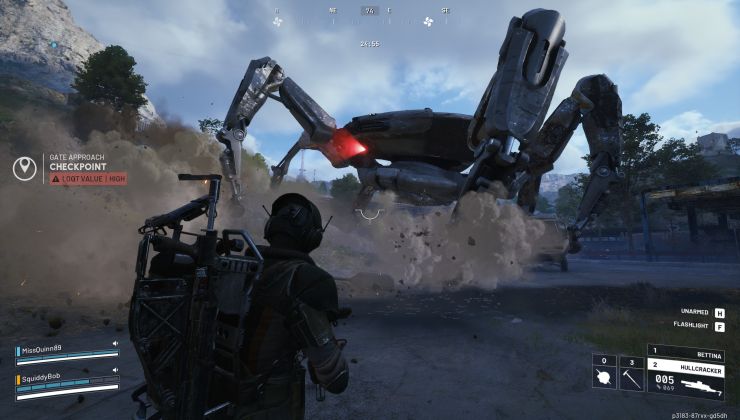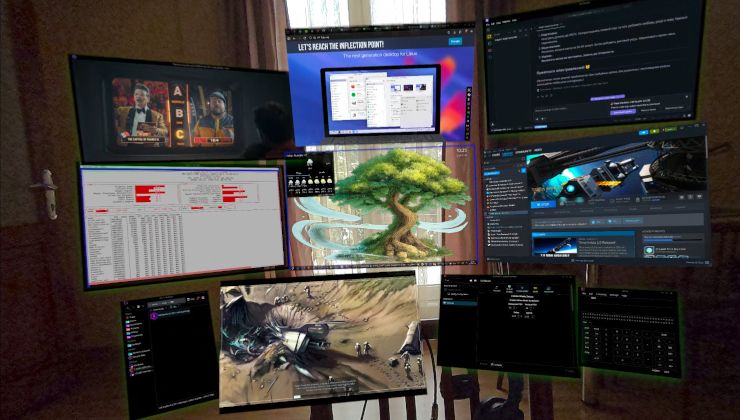Lossless Scaling is a very popular application for Windows, and the new lsfg-vk project aims to bring Lossless Scaling's Frame Generation to Linux.
It's a new project and very much in-development, so parts may not work as expected. The developer has been rapidly fixing issues as they come in.
The installation process is a bit involved though, so you need to be pretty Linux-comfortable right now to actually make use of it as it's quite a manual process. You also need to have purchased Lossless Scaling on Steam, and it makes use of a legacy version.
Hopefully now it has been revealed, more Linux hackers can jump in and improve the process for everyone.
On the GitHub Wiki the developer posted up on how they actually achieved it, which is really interesting if you love the technical side of how people do things. Like the "Porting LSFG to native Vulkan" article that mentions the "psychological torture" the dev went through "to make this project work".
You can find it on GitHub.
It's important that these type of projects that address such issues exists. Hopefully it can be implemented on ProtonUp-Qt and ProtonPlus eventually.
Seems to be important to some people though. Maybe it's the size of my screen or something.
And if I can't tell the difference on a still image, I'm definitely not going to notice in-game.Actually, I think you're much more likely to notice it in game. But not as a positive thing. It comes in the form of dynamic artefacts, which you could never see on screenshots. And I'm so tired of those that I'm actually considering a blanket refund policy on anything that needs upscaling to perform. And unfortunately for game devs, that likely includes everything that needs ray tracing.
And I'm so tired of those that I'm actually considering a blanket refund policy on anything that needs upscaling to perform.I think upscaling is fine when used properly. I remember Serious Sam Fusion had an upscaling option already in 2017, which allowed me to enjoy the game on my shitty laptop back then.
Now frame generation is what baffles me. It actually causes artefacts, lag, and other self-induced problems just to get that artificially high FPS number.
Here is an article that sums it up quite nicely. A bit lengthy and ranty, but worth a read:
https://blog.sebin-nyshkim.net/posts/nvidia-is-full-of-shit/
Would this help with games which don't support HiDPI Screens? Still lots of SDL-based games are nearly impossible to play on HiDPI-Screens without manually chaning the resolution.Personally, I would use gamescope for that. This project seems to be specifically for frame generation, and if you couple gamescope with the ScopeBuddy wrapper, you can streamline the use of it. It allows you to use a centralized conf file that you can define both Proton and gamescope launch options within, so the only thing you have to define in Steam is "scb -- %command%". And of course, it can be used with games outside of Steam. You can also create individual conf files based on the AppID of a game in case you need to get a bit more granular with one, and it fixes the overlay and Steam Input breakage caused by gamescope. I've made a habit out of just using it with every game now. It works around common windowing and resolution problems I have on Wayland, and until devs stop infighting over xwayland, it's an excellent bandaid.
Last edited by Joom on 7 Jul 2025 at 4:06 pm UTC
sudo dnf group install development-tools
sudo dnf install clang clang-devel clang-tools-extra clang-tools-extra-devel llvm llvm-devel vulkan-headers cmake meson ninja git SDL3 SDL3-devel sdl2-compat sdl2-compat-devel
git clone --depth 1 https://github.com/PancakeTAS/lsfg-vk.git
cd lsfg-vk
cmake --build build
cmake --install buildedit: Seems to work! Nice!
MANGOHUD=1 ENABLE_LSFG=1 LSFG_MULTIPLIER=2 LSFG_DLL_PATH="$HOME/.steam/steam/steamapps/common/Lossless Scaling/Lossless.dll" %command%Last edited by tfk on 7 Jul 2025 at 7:27 pm UTC
I think upscaling is fine when used properly. I remember Serious Sam Fusion had an upscaling option already in 2017, which allowed me to enjoy the game on my shitty laptop back then.Agree strongly. Plus, emulation is another key place to use upscaling, at least for me
Now frame generation is what baffles me. It actually causes artefacts, lag, and other self-induced problems just to get that artificially high FPS number.
Here is an article that sums it up quite nicely. A bit lengthy and ranty, but worth a read:
https://blog.sebin-nyshkim.net/posts/nvidia-is-full-of-shit/
I own LS and was wondering if anyone would figure out a hack-around someday, nice to see that is happening now. I do wonder how far they will be able to bring it tho, full-feature latest version one day? perhaps. It can already hook into AMD and NVIDIA driver FG features for DLSS and FSR, and maybe same for Intel. But its own custom FG flavours I do wonder...
Some older games have SERIOUS engine issues and simply don't even run well at 4k on 5090Serious Engine games actually run very well on modern high-end PCs, in my experience. :P
...I'll see myself out.
Gamescope is okay, but it uses only FSR1, which is ancient. Instead of Gamescope (and Lossless Scaling), a better option is to use Optiscaler, which supports upto FSR4 (if your GPU supports it), or FSR 3.1.4. It even supports DLSS and XeSS! Basically it looks at whatever method your game is using, and allows you to inject the DLLs for whichever scaler you'd like to use, so it's pretty flexible, and gives you a better result compared to Gamescope.Would this help with games which don't support HiDPI Screens? Still lots of SDL-based games are nearly impossible to play on HiDPI-Screens without manually chaning the resolution.Personally, I would use gamescope for that.
Of course, this is assuming your game has a native scaling option.. if not, then you'd have to resort to using Gamescope. But in such a situation, there's a good chance there may be a mod available for your game to add higher resolution/scaling natively. And for old DirectDraw games you could use cnc-draw.










 How to setup OpenMW for modern Morrowind on Linux / SteamOS and Steam Deck
How to setup OpenMW for modern Morrowind on Linux / SteamOS and Steam Deck How to install Hollow Knight: Silksong mods on Linux, SteamOS and Steam Deck
How to install Hollow Knight: Silksong mods on Linux, SteamOS and Steam Deck